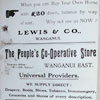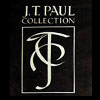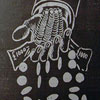Cabinet 10
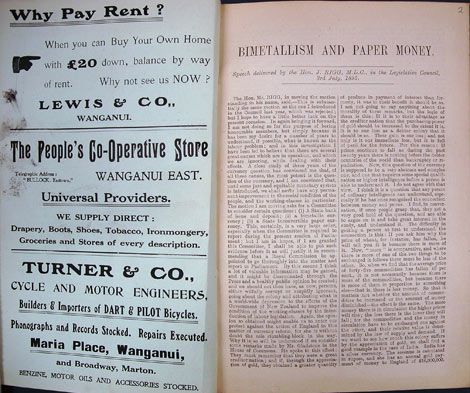
Opposite John Rigg’s Bimetallism and Paper Money (1895) are a cluster of typographic devices and the usual mix of fonts that make pamphlets so attractive, and useful, especially for historical purposes. In this case, a page reveals firms operating in the Wanganui and Marton area. John Rigg (1858–1943) was a printer and trade unionist who was staunchly against the Industrial Conciliation and Arbitration Amendment Act 1908 (he believed in the worker’s right to strike), and wrote much on socialism and currency reform. Coincidentally, this pamphlet was once owned by J. T. Paul, a labour leader whom Rigg was often in dispute with.
John Rigg, Bimetallism and Paper Money. Wellington: Samuel Costall, Government Printer, 1895. Vol. 46, no. 2. J. T. Paul Pamphlets. Hocken Library.
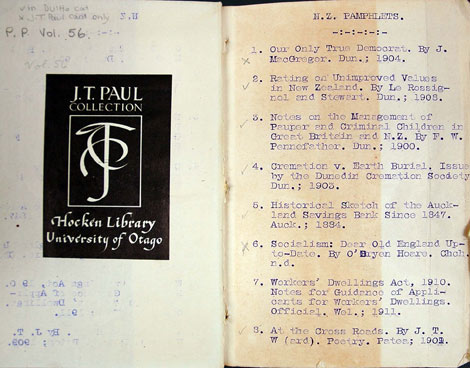
Australian-born John Thomas Paul (1874-1964) arrived in Dunedin in 1899 and became well-known in the print trade and trade union circles. In 1906, he became editor of the Otago labour paper, the Liberal (later The Beacon) and from 1924-1932 was editor of the Otago Witness. In 1939, after a move to Wellington, he was appointed Director of Publicity, where he was not only in charge of boosting morale of the allied troops, but also in charge of press censorship. The NZNB lists 17 pamphlets written by Paul, and one substantial book: Humanism in Politics [1946]. The typed contents page of the volume on display offers a glimpse of the scope of his collecting. His collection of pamphlets is now housed at the Hocken Library.
J. T. Paul Pamphlets. Vol. 56. Hocken Library.
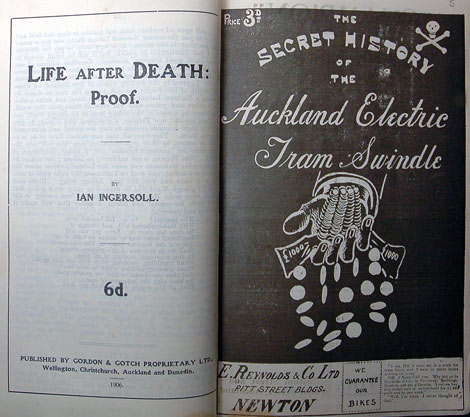
Very few entries on pamphlets are included in Dr Hocken’s Bibliography (1909). Like the products from the throng of versifiers and poetasters, Hocken regarded such items as ‘of little moment’ (preface). In some instances, he may have been unaware of the existence of such contentious topics as Robert Way’s anonymously written and privately printed The Secret History of the Auckland Electric Tram Swindle. Fortunately, J. T. Paul came across a copy of this item and salvaged it. This ‘piratical’ pamphlet, with its skull and crossbones image, cost threepence (five cents). Way was one-time President of the Rationalist Society.
Robert F. Way, The Secret History of the Auckland Electric Tram Swindle. Auckland: R. F. Way, [1907]. Vol. 1, no. 5. J. T. Paul Pamphlets. Hocken Library.

